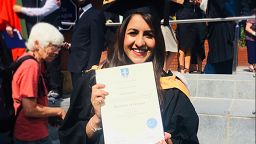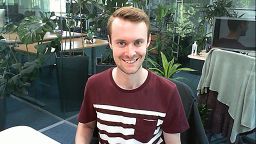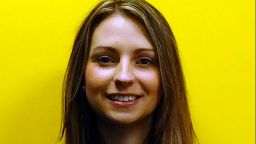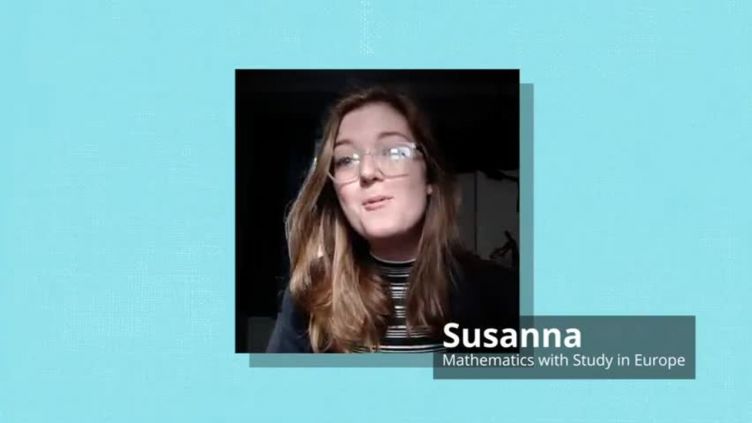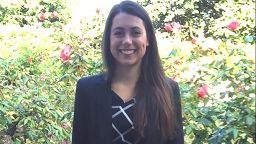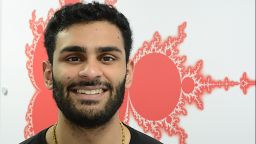Mathematics with Placement Year BSc
2024-25 entryPut your numerical skills into practice in the real world, and build up more experience for your CV. Our students have worked in finance roles at major corporations and applied their analysis skills to data science jobs in the civil service as part of their degree.
Key details
- A Levels AAA
Other entry requirements - UCAS code GG11
- 4 years / Full-time
- September start
- Find out the course fee
- Industry placement
- View 2025-26 entry
Explore this course:
Course description
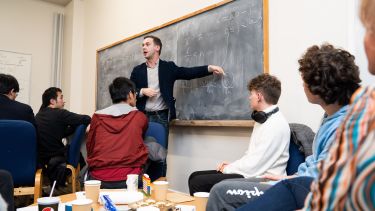
Advance your problem-solving skills, put them into practice in the real world and build unforgettable experience for your CV.
Explore the field and test out possible career paths with this Mathematics with Placement Year BSc from Sheffield. This is a degree with so much flexibility, it’s yours to shape.
Building on core topics in year one, you’ll go into your second year with a whole menu of optional modules – from differential equations, statistical modelling and computer simulations to the mechanics of motion in fluids and solids.
Some module options include more project work. This gives you the chance to put your mathematics skills into practice in different contexts and scenarios that you might encounter when you start work after graduation.
Your third year will be your placement year, where you can for example try out finance roles at major corporations, or apply your analysis skills to data science in the civil service. You’ll have plenty of support from your tutors all the way through, and you may come back with the offer of a job when you graduate.
Back in Sheffield for your fourth year, you’ll have the skills, knowledge and experience to go in lots of different directions in mathematics. This final year is the perfect time to test what interests you the most – building on your placement experience to develop the first steps in your career.
Why study this course?
- Tailor your degree - wide range of flexible module options to allow you to specialise in the areas of mathematics and statistics which you care about.
- Industry placement experience - spend a whole year in industry, gaining first-hand experience in applying mathematics and statistics in a real business situation.
- Real-world problem solving - research unanswered questions, from the most abstract research in areas like algebraic geometry and number theory, to the calculations behind animal movements and black holes.
- Everyone is welcome - there’s a place at Sheffield for everyone who enjoys mathematics. Find a warm welcome at our active student society (SUMS), regular maths challenges and a dedicated LGBT+ student group for maths students.
- Career success - careers and employability skills are built into our maths degree programmes, and major employers like Goldman Sachs, Unilever, and the NHS hire our graduates to solve problems.
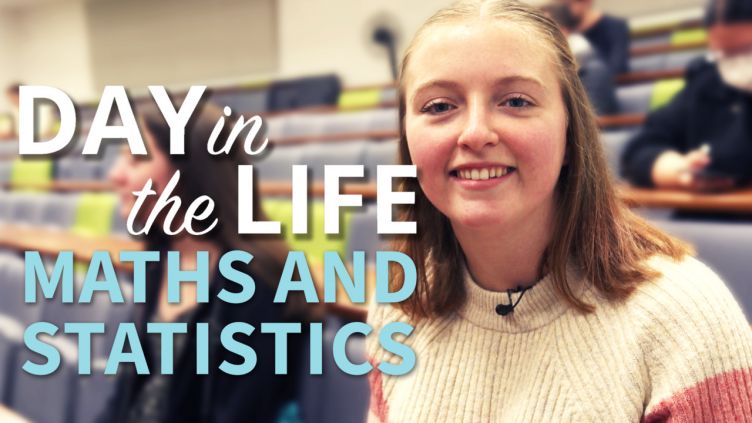
Modules
A selection of modules are available each year - some examples are below. There may be changes before you start your course. From May of the year of entry, formal programme regulations will be available in our Programme Regulations Finder.
Choose a year to see modules for a level of study:
UCAS code: GG11
Years: 2023
Core modules:
- Mathematics Core
-
Mathematics Core covers topics which continue school mathematics and which are used throughout the degree programmes: calculus and linear algebra, developing the framework for higher-dimensional generalisation. This material is central to many topics in subsequent courses. At the same time, small-group tutorials with the Personal Tutor aim to develop core skills, such as mathematical literacy and communication, some employability skills and problem-solving skills.
40 credits - Foundations of Pure Mathematics
-
The module aims to give an overview of basic constructions in pure mathematics; starting from the integers, we develop some theory of the integers, introducing theorems, proofs, and abstraction. This leads to the idea of axioms and general algebraic structures, with groups treated as a principal example. The process of constructing the real numbers from the rationals is also considered, as a preparation for “analysis”, the branch of mathematics where the properties of sequences of real numbers and functions of real numbers are considered.
20 credits - Mathematical modelling
-
Mathematics is the language of science. By framing a scientific question in mathematical language, it is possible to gain deep insight into the empirical world. This module aims to give students an appreciation of this astonishing phenomenon. It will introduce them to the concept of mathematical modelling via examples from throughout science, which may include biology, physics, environmental sciences, and more. Along the way, a range of mathematical techniques will be learned that tend to appear in empirical applications. These may include (but not necessarily be limited to) difference and differential equations, calculus, and linear algebra.
20 credits - Probability and Data Science
-
Probability theory is branch of mathematics concerned with the study of chance phenomena. Data science involves the handling and analysis of data using a variety of tools: statistical inference, machine learning, and graphical methods. The first part of the module introduces probability theory, providing a foundation for further probability and statistics modules, and for the statistical inference methods taught here. Examples are presented from diverse areas, and case studies involving a variety of real data sets are discussed. Data science tools are implemented using the statistical computing language R.
20 credits - Mathematical Investigation Skills
-
This module introduces topics which will be useful throughout students’ time as undergraduates and in employment. These skills fall into two categories: computer literacy and presentation skills. One aim of this module is to develop programming skills within Python to perform mathematical investigations. Students will also meet the typesetting package LaTeX, the web design language HTML, and Excel for spreadsheets. These will be used for making investigations, and preparing reports and presentations into mathematical topics.
20 credits
In your second year, you’ll continue to build a powerful toolbox of mathematical techniques, which you can apply to increasingly complex problems. There is less compulsory maths and more options, so as well as calculus and algebra, you can study topics including differential equations, the mechanics of motion in fluids and solids, statistical modelling and computer simulations.
Core modules:
- Mathematics Core II
-
Building on Level 1 Mathematics Core, Mathematics Core II will focus on foundational skills and knowledge for both higher mathematics and your future life as a highly skilled, analytically-astute worker. Mathematical content will focus on topics that are vital for all areas of the mathematical sciences (pure, applied, statistics), such as vector calculus and linear algebra. This will help develop your analytic and problem solving skills. Alongside this, you will continue to develop employability skills, building on Level 1 Core. Finally, there will be opportunities to learn and reflect on social, ethical, and historical aspects of mathematics, which will enrich your understanding of the importance of mathematics in the modern world.
30 credits - Differential equations
-
Differential equations are perhaps the most important tool in applied mathematics. They are foundational for modelling all kinds of physical and natural phenomena, including fluids and plasmas, populations of animals or cells, cosmological objects (via relativity), subatomic particles (via quantum mechanics), epidemics, even political and social opinions have been modelled using differential equations. This module will build on the tools learned at Level 1 for analysing differential equations, extending them in a variety of ways. This may include topics such as bifurcation analysis, partial differential equations (which are particularly valuable for modelling things that vary in both space and time), and the effects of boundaries on the dynamics of differential equations. It will provide the foundation for essentially all applied maths modules taught at Levels 3 and 4.
20 credits - Analysis and Algebra
-
This module will build on the theory built in Level 1 'Foundations of Pure Mathematics', focusing on the twin pillars of analysis and algebra. These are not only fundamental for pure mathematics at higher levels, but provide rigorous theory behind core concepts that are used throughout the mathematical sciences. Whilst to some extent you have been doing analysis and algebra since you were at school, here you will be going much deeper. You will examine why familiar tools, like differentiation and integration, actually work. Familiar objects, such as vectors, differential operators, and matrices, will be unpacked; powerful, formal properties of these objects proved. Ultimately, this rigorous foundation will enable you to extend these tools and concepts to tackle a far greater set of problems than before.
20 credits - Statistical Inference and Modelling
-
Statistical inference and modelling are at the heart of data science, a field of rapidly-growing importance in the modern word. This module develops methods for analysing data, and provides a foundation for further study of probability and statistics at higher Levels. You will learn about a range of standard probability distributions beyond those met at Level 1, including multivariate distributions. You will learn about sampling theory and summary statistics, and their relation to data analysis. You will discover how to parametrise various types of statistical model, learn techniques for determining whether one model is 'better' than another for understanding a dataset, and learn how to ascertain how good a statistical model is at explaining trends in data. The software package R will be used throughout.
20 credits
Optional modules:
- Stochastic Modelling
-
Many things about life are unpredictable. Consequently, it often makes sense to incorporate some randomness in mathematical models of natural and physical processes. Such models are called 'stochastic models' and are the study object of this module. We will learn about a number of general models for processes where the state of a system is fluctuating randomly over time. Examples might include the length of a queue, the size of a reproducing population, or the quantity of water in a reservoir. We will cover various techniques for analysis of such models, setting the student up for further study of stochastic processes and probability at levels 3 and 4.
10 credits - Vector Calculus and Dynamics
-
Vector calculus is a fundamental tool for modelling the dynamics of all kinds of objects, both solid and fluid. In this module, you will build on the tools of vector calculus from Mathematics Core II, combining them with tools of differential equations from the L1 Mathematical Modelling module, and applying them to understand the dynamics of physical systems. Possible examples might include liquid, gases, plasmas, and/or planetary motion. The tools developed here will build valuable knowledge for the study of fluid dynamics and other applied mathematics modules at higher levels.
10 credits - Group Theory
-
A group is one of the most foundational objects in mathematics. It just consists of a set, together with a way of combining two objects in that set to create another object in an internally-consistent fashion. Familiar examples abound: integers with addition, real numbers with multiplication, symmetries of the square, and so on. In this module, you will learn about formal properties of groups in general, including famous results like the orbit-stabiliser theorem. You will also learn about important foundational examples, such as number, matrices, and symmetries. You will learn how the general framework of groups allows you to prove theorems that pertain to all these examples in one go. This provides a great example of the power and beauty of abstraction, a feature of pure mathematics that underlies the entire module.
10 credits - Mathematics and Statistics in Action
-
In this project module, you will investigate one or more case studies of using mathematics and statistics for solving empirical (i.e. 'real world') problems. These case studies will illustrate the process of mathematical and statistical modelling, whereby real-world questions are translated to mathematical and/or statistical questions. Students will see how techniques learned earlier in their degree can be used to explore these problems. There will be a mix of individual and group projects to choose from, and some projects may involve the use of R or Python, but 'MAS116 Mathematical Investigations Skills' is not a prerequisite. Students will be expected to work independently (either individually or in a small group). However, the topic and scope of each piece of project work will be clearly defined by the lecturer in charge of the topic.
10 credits - Scientific Computing
-
The ability to programme is a central skill for any highly-numerate person in the 21st century. This module builds on skills learned at Level 1 in 'Mathematical Investigation Skills' by developing skills in computer programming and independent investigation. You will learn how to solve various mathematical problems in programming languages commonly-used by mathematicians, for example Python. You will learn basic computational and visualisation methods for exploring numerical solutions to equations (including differential equations), and then apply this knowledge to explore the behaviour of example physical systems that these equations might model.
10 credits
You'll spend your third year on your industry placement. Your placement year is a great way to get experience of real-world mathematics and improve your CV. We'll give you all the support you need to find the right employer.
Optional modules:
- Stochastic Processes and Finance
-
A stochastic process is a mathematical model for phenomena unfolding dynamically and unpredictably over time. This module studies two classes of stochastic process particularly relevant to financial phenomena: martingales and diffusions. The module develops the properties of these processes and then explores their use in Finance. A key problem considered is that of the pricing of a financial derivative such as an option giving the right to buy or sell a stock at a particular price at a future time. What is such an option worth now? Martingales and stochastic integration are shown to give powerful solutions to such questions.
20 credits - Undergraduate Ambassadors Scheme in Mathematics
-
This module provides an opportunity for Level Three students to gain first hand experience of mathematics education through a mentoring scheme with mathematics teachers in local schools. Typically, each student will work with one class for half a day every week for 11 weeks. The classes will vary from key stage 2 to sixth form. Students will be given a range of responsibilities from classroom assistant to the organisation and teaching of self-originated special projects. Only a limited number of places are available and students will be selected on the basis of their commitment and suitability for working in schools.
20 credits - Bayesian Statistics
-
This module develops the Bayesian approach to statistical inference. The Bayesian method is fundamentally different in philosophy from conventional frequentist/classical inference and is becoming the approach of choice in many fields of applied statistics. This course will cover both the foundations of Bayesian statistics, including subjective probability, inference, and modern computational tools for practical inference problems, specifically Markov Chain Monte Carlo methods and Gibbs sampling. Applied Bayesian methods will be demonstrated in a series of case studies using the software package R.
10 credits - Codes and Cryptography
-
The word 'code' is used in two different ways. The ISBN code of a book is designed in such a way that simple errors in recording it will not produce the ISBN of a different book. This is an example of an 'error-correcting code' (more accurately, an error-detecting code). On the other hand, we speak of codes which encrypt information - a topic of vital importance to the transmission of sensitive financial information across the internet. These two ideas, here labelled 'Codes' and 'Cryptography', each depend on elegant pure mathematical ideas: codes on linear algebra and cryptography on number theory. This course explores these topics, including the real-life applications and the mathematics behind them.
10 credits - Combinatorics
-
Combinatorics is the mathematics of selections and combinations. For example, given a collection of sets, when is it possible to choose a different element from each of them? That simple question leads to Hall's Theorem, a far-reaching result with applications to counting and pairing problems throughout mathematics.
10 credits - Complex Analysis
-
It is natural to use complex numbers in algebra, since these are the numbers we need to provide the roots of all polynomials. In fact, it is equally natural to use complex numbers in analysis, and this course introduces the study of complex-valued functions of a complex variable. Complex analysis is a central area of mathematics. It is both widely applicable and very beautiful, with a strong geometrical flavour. This course will consider some of the key theorems in the subject, weaving together complex derivatives and complex line integrals. There will be a strong emphasis on applications. Anyone taking the course will be expected to know the statements of the theorems and be able to use them correctly to solve problems.
10 credits - Financial Mathematics
-
The discovery of the Capital Asset Pricing Model by William Sharpe in the 1960's and the Black-Scholes option pricing formula a decade later mark the beginning of a very fruitful interaction between mathematics and finance. The latter obtained new powerful analytical tools while the former saw its knowledge applied in new and surprising ways. (A key result used in the derivation of the Black-Scholes formula, Ito's Lemma, was first applied to guide missiles to their targets; hence the title 'rocket science' applied to financial mathematics). This course describes the mathematical ideas behind these developments together with their application in modern finance.
10 credits - Game Theory
-
The module will give students the opportunity to apply previously acquired mathematical skills to the study of Game Theory and to some of the applications in Economics.
10 credits - Generalised Linear models
-
This module introduces the theory and application of generalised linear models. These models can be used to investigate the relationship between some quantity of interest, the 'dependent variable', and one more 'explanatory' variables; how the dependent variable changes as the explanatory variables change. The term 'generalised' refers to the fact that these models can be used for a wide range of different types of dependent variable: continuous, discrete, categorical, ordinal etc. The application of these models is demonstrated using the programming language R.
10 credits - Graph Theory
-
A graph is a simple mathematical structure consisting of a collection of points, some pairs of which are joined by lines. Their basic nature means that they can be used to illustrate a wide range of situations. The aim of this course is to investigate the mathematics of these structures and to use them in a wide range of applications.
10 credits - Introduction to Relativity
-
Einstein's theory of relativity is one of the corner stones of our understanding of the universe. This course will introduce some of the ideas of relativity, and the physical consequences of the theory, many of which are highly counter-intuitive. For example, a rapidly moving body will appear to be contracted as seen by an observer at rest. The course will also introduce one of the most famous equations in the whole of mathematics: E=mc^2.
10 credits - Machine Learning
-
Machine learning lies at the interface between computer science and statistics. The aims of machine learning are to develop a set of tools for modelling and understanding complex data sets. It is an area developed recently in parallel between statistics and computer science. With the explosion of 'Big Data', statistical machine learning has become important in many fields, such as marketing, finance and business, as well as in science. The module focuses on the problem of training models to learn from training data to classify new examples of data.
10 credits - Topics in Mathematical Biology
-
This module focuses on the mathematical modelling of biological phenomena. The emphasis will be on deterministic models based on systems of differential equations. Examples will be drawn from a range of biological topics, which may include the spread of epidemics, predator-prey dynamics, cell biology, medicine, or any other biological phenomenon that requires a mathematical approach to understand. Central to the module will be the dynamic consequences of feedback interactions within biological systems. In cases where explicit solutions are not readily obtainable, techniques that give a qualitative picture of the model dynamics (including numerical simulation) will be used. If you did not take Scientific Computing at Level 2, you may still be able to enrol on this module, but you will need to obtain permission from the module leader first.
10 credits - Mathematical Methods
-
This course introduces methods which are useful in many areas of mathematics. The emphasis will mainly be on obtaining approximate solutions to problems which involve a small parameter and cannot easily be solved exactly. These problems will include the evaluation of integrals. Examples of possible applications are: oscillating motions with small nonlinear damping, the effect of other planets on the Earth's orbit around the Sun, boundary layers in fluid flows, electrical capacitance of long thin bodies, central limit theorem correction terms for finite sample size.
10 credits - Mathematical modelling of natural systems
-
Mathematical modelling enables insight in to a wide range of scientific problems. This module will provide a practical introduction to techniques for modelling natural systems. Students will learn how to construct, analyse and interpret mathematical models, using a combination of differential equations, scientific computing and mathematical reasoning. Students will learn the art of mathematical modelling: translating a scientific problem into a mathematical model, identifying and using appropriate mathematical tools to analyse the model, and finally relating the significance of the mathematical results back to the original problem. Study systems will be drawn from throughout the environmental and life sciences.
10 credits - Probability with Measure
-
Probability is a relatively new part of mathematics, first studied rigorously in the early part of 20th century. This module introduces the modern basis for probability theory, coming from the idea of 'measuring' an object by attaching a non-negative number to it. This might refer to its length or volume, but also to the probability of an event happening. We therefore find a close connection between integration and probability theory, drawing upon real analysis. This rigorous theory allows us to study random objects with complex or surprising properties, which can expand our innate intuition for how probability behaves. The precise material covered in this module may vary according to the lecturer's interests.
10 credits - Medical Statistics
-
This course comprises sections on Clinical Trials and Survival Data Analysis. The special ethical and regulatory constraints involved in experimentation on human subjects mean that Clinical Trials have developed their own distinct methodology. Students will, however, recognise many fundamentals from mainstream statistical theory. The course aims to discuss the ethical issues involved and to introduce the specialist methods required. Prediction of survival times or comparisons of survival patterns between different treatments are examples of paramount importance in medical statistics. The aim of this course is to provide a flavour of the statistical methodology developed specifically for such problems, especially with regard to the handling of censored data (eg patients still alive at the close of the study). Most of the statistical analyses can be implemented in standard statistical packages.
10 credits - Metric Spaces
-
This unit explores ideas of convergence of iterative processes in the more general framework of metric spaces. A metric space is a set with a distance function which is governed by just three simple rules, from which the entire analysis follows. The course follows on from MAS207 'Continuity and Integration', and adapts some of the ideas from that course to the more general setting. The course ends with the Contraction Mapping Theorem, which guarantees the convergence of quite general processes; there are applications to many other areas of mathematics, such as to the solubility of differential equations.
10 credits - Operations Research
-
Mathematical Programming is the title given to a collection of optimisation algorithms that deal with constrained optimisation problems. Here the problems considered will all involve constraints which are linear, and for which the objective function to be maximised or minimised is also linear. These problems are not continuously differentiable; special algorithms have to be developed. The module considers not only the solution of such problems but also the important area of post-optimality analysis; i.e. given the solution can one answer questions about the effect of small changes in the parameters of the problem (such as values of the cost coefficients)?
10 credits - Quantum Theory
-
The development of quantum theory revolutionized both physics and mathematics during the 20th century. The theory has applications in many technological advances, including: lasers, super-conductors, modern medical imaging techniques, transistors and quantum computers. This course introduces the basics of the theory and brings together many aspects of mathematics: for example, probability, matrices and complex numbers. Only first year mechanics is assumed, and other mathematical concepts will be introduced as they are needed.
10 credits - Sampling Theory and Design of Experiments
-
The results of sample surveys through opinion polls are commonplace in newspapers and on television. The objective of the Sampling Theory section of the module is to introduce several different methods for obtaining samples from finite populations. Experiments which aim to discover improved conditions are commonplace in industry, agriculture, etc. The purpose of experimental design is to maximise the information on what is of interest with the minimum use of resources. The aim of the Design section is to introduce some of the more important design concepts.
10 credits - Time Series
-
Time series are observations made in time, for which the time aspect is potentially important for understanding and use. The course aims to give an introduction to modern methods of time series analysis and forecasting as applied in economics, engineering and the natural, medical and social sciences. The emphasis will be on practical techniques for data analysis, though appropriate stochastic models for time series will be introduced as necessary to give a firm basis for practical modelling. Appropriate computer packages will be used to implement the methods.
10 credits - Topics in Number Theory
-
In this module we study intergers, primes and equations. Topics covered include linear and quadratic congruences, Fermat Little Theorem and Euler's Theorem, the RSA cryptosystem, Quadratic Reciprocity, perfect numbers, continued fractions and others.
10 credits - Skills Development in Mathematics and Statistics
-
This module consolidates skills development across a number of areas of the SoMaS curriculum, allowing students choice from a range of application areas in mathematics and statistics. Students will complete a portfolio, comprising a range of outputs from project work, group work, and outputs from digital learning. Possible areas of mathematics include statistical investigations, history of mathematics, mathematical modelling, and sustainability, while the outputs might take the form of written projects, for example. The module will involve considerable independent study, but staff will be available to guide you in your work.
20 credits - Probability and Random Graphs
-
Random graphs were studied by mathematicians as early as the 1950s. The field has become particularly important in recent decades as modern technology gives rise to a vast range of examples, such as social and communication networks, or the genealogical relationships between organisms. This course studies a range of models of random trees, graphs and networks, alongside probabilistic ideas that are needed to analyse their different properties. The precise material covered in this module may vary according to the lecturer's interests.
10 credits
The content of our courses is reviewed annually to make sure it's up-to-date and relevant. Individual modules are occasionally updated or withdrawn. This is in response to discoveries through our world-leading research; funding changes; professional accreditation requirements; student or employer feedback; outcomes of reviews; and variations in staff or student numbers. In the event of any change we'll consult and inform students in good time and take reasonable steps to minimise disruption.
Learning and assessment
Learning
You'll learn through lectures, problems classes in small groups and research projects. Some modules also include programming classes.
Assessment
You will be assessed in a variety of ways, depending on the modules you take. This can include quizzes, examinations, presentations, participation in tutorials, projects, coursework and other written work.
Programme specification
This tells you the aims and learning outcomes of this course and how these will be achieved and assessed.
Entry requirements
With Access Sheffield, you could qualify for additional consideration or an alternative offer - find out if you're eligible.
The A Level entry requirements for this course are:
AAA
including Maths
- A Levels + a fourth Level 3 qualification
- AAB, including A in Maths + A in a relevant EPQ; AAB, including A in Maths + B in A Level Further Maths
- International Baccalaureate
- 36, with 6 in Higher Level Maths (Analysis and Approaches)
- BTEC Extended Diploma
- D*DD in Engineering with Distinctions in all Maths units
- BTEC Diploma
- DD + A in A Level Maths
- Scottish Highers + 1 Advanced Higher
- AAAAB + A in Maths
- Welsh Baccalaureate + 2 A Levels
- A + AA, including Maths
- Access to HE Diploma
- Award of Access to HE Diploma in a relevant subject, with 45 credits at Level 3, including 39 at Distinction (to include Maths units) and 6 at Merit
-
We will give your application additional consideration if you have passed the Sixth Term Examination Paper (STEP), STEP 2 or STEP 3, at grade 3 or above. We do not consider STEP results in place of a third A Level
The A Level entry requirements for this course are:
AAB
including A in Maths
- A Levels + a fourth Level 3 qualification
- AAB, including A in Maths + A in a relevant EPQ; AAB, including A in Maths + B in A Level Further Maths
- International Baccalaureate
- 34, with 6 in Higher Level Maths (Analysis and Approaches)
- BTEC Extended Diploma
- DDD in Engineering with Distinctions in all Maths units
- BTEC Diploma
- DD + A in A Level Maths
- Scottish Highers + 1 Advanced Higher
- AAABB + A in Maths
- Welsh Baccalaureate + 2 A Levels
- B + AA, including Maths
- Access to HE Diploma
- Award of Access to HE Diploma in a relevant subject, with 45 credits at Level 3, including 36 at Distinction (to include Maths units) and 9 at Merit
-
We will give your application additional consideration if you have passed the Sixth Term Examination Paper (STEP), STEP 2 or STEP 3, at grade 3 or above. We do not consider STEP results in place of a third A Level
You must demonstrate that your English is good enough for you to successfully complete your course. For this course we require: GCSE English Language at grade 4/C; IELTS grade of 6.5 with a minimum of 6.0 in each component; or an alternative acceptable English language qualification
Equivalent English language qualifications
Visa and immigration requirements
Other qualifications | UK and EU/international
If you have any questions about entry requirements, please contact the department.
Graduate careers
School of Mathematics and Statistics
Strong mathematics skills open all kinds of doors for our graduates: from banking, insurance and pensions, to software development at tech companies and encryption services at security agencies. They also work for businesses with vast amounts of data to process and inform new products and services.
Organisations that have hired Sheffield maths graduates include AstraZeneca, BAE Systems, Barclays, Bet365, Dell, Deloitte, Goldman Sachs, GSK, HSBC, IBM, Lloyds, PwC, Unilever, the Civil Service and the NHS. Lots of our students also go on to do PhDs at world top 100 universities.
Your career in mathematics and statistics
School of Mathematics and Statistics

When new students join the School of Mathematics and Statistics, we want them to feel part of a community. At the heart of this is the Sheffield University Mathematics Society, or SUMS, who organise activities throughout the academic year – from charity fundraisers to nights out. Our students also take part in pizza lectures, rocket engineering projects, international maths challenges, and an LGBT+ support group for maths students.
Staff in the School of Mathematics and Statistics work on a wide range of topics, from the most abstract research in areas like algebraic geometry and number theory, to the calculations behind animal movements and black holes. They’ll guide you through the key concepts and techniques that every mathematician needs to understand and give you a huge range of optional modules to choose from.
The department is based in the Hicks Building, which has classrooms, lecture theatres, computer rooms and social spaces for our students. It’s right next door to the Students' Union, and just down the road from the 24/7 library facilities at the Information Commons and the Diamond.
School of Mathematics and StatisticsWhy choose Sheffield?
The University of Sheffield
Number one in the Russell Group
National Student Survey 2023 (based on aggregate responses)
92 per cent of our research is rated as world-leading or internationally excellent
Research Excellence Framework 2021
Top 50 in the most international universities rankings
Times Higher Education World University Rankings 2023
Number one Students' Union in the UK
Whatuni Student Choice Awards 2023, 2022, 2020, 2019, 2018, 2017
Number one for teaching quality, Students' Union and clubs/societies
StudentCrowd 2023 University Awards
A top 20 university targeted by employers
The Graduate Market in 2023, High Fliers report
School of Mathematics and Statistics
Research Excellence Framework 2021
Fees and funding
Fees
Additional costs
The annual fee for your course includes a number of items in addition to your tuition. If an item or activity is classed as a compulsory element for your course, it will normally be included in your tuition fee. There are also other costs which you may need to consider.
Funding your study
Depending on your circumstances, you may qualify for a bursary, scholarship or loan to help fund your study and enhance your learning experience.
Use our Student Funding Calculator to work out what you’re eligible for.
Visit
University open days
We host five open days each year, usually in June, July, September, October and November. You can talk to staff and students, tour the campus and see inside the accommodation.
Subject tasters
If you’re considering your post-16 options, our interactive subject tasters are for you. There are a wide range of subjects to choose from and you can attend sessions online or on campus.
Offer holder days
If you've received an offer to study with us, we'll invite you to one of our offer holder days, which take place between February and April. These open days have a strong department focus and give you the chance to really explore student life here, even if you've visited us before.
Campus tours
Our weekly guided tours show you what Sheffield has to offer - both on campus and beyond. You can extend your visit with tours of our city, accommodation or sport facilities.
Apply
Contact us
- Telephone
- +44 114 222 3999
- maths.admiss@sheffield.ac.uk
The awarding body for this course is the University of Sheffield.
Recognition of professional qualifications: from 1 January 2021, in order to have any UK professional qualifications recognised for work in an EU country across a number of regulated and other professions you need to apply to the host country for recognition. Read information from the UK government and the EU Regulated Professions Database.
Any supervisors and research areas listed are indicative and may change before the start of the course.

